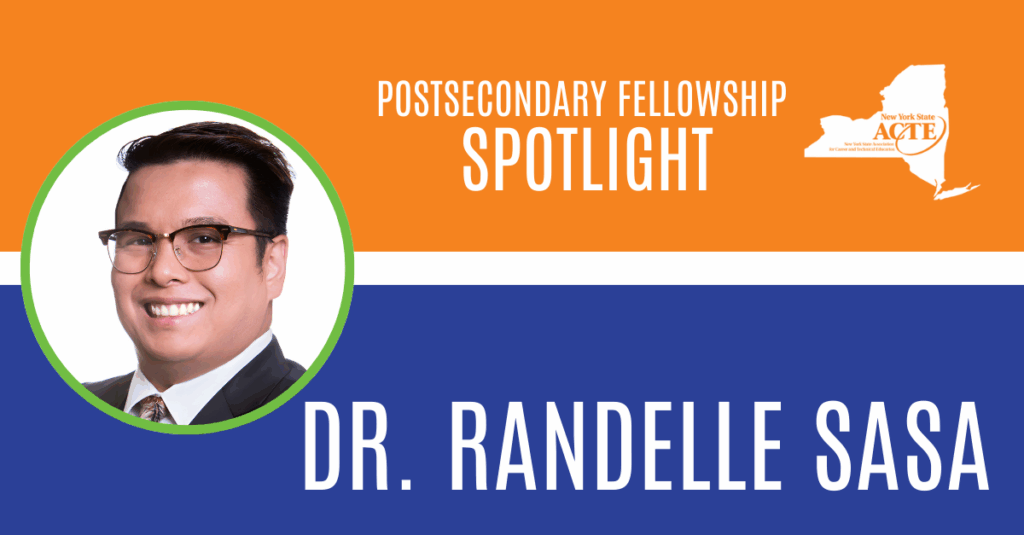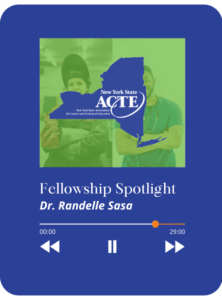
When Dr. Randelle Sasa arrived in the U.S. in 2013, he was already a licensed Intensive Care Unit (ICU) nurse with a master’s degree and teaching experience in the Philippines. Yet like so many skilled immigrants entering the U.S. healthcare system, he found himself starting from the bottom. He worked in long-term care and struggled to break into hospital settings. Despite having advanced credentials and experience, internationally educated nurses often face systemic barriers such as licensing hurdles, employer skepticism, and a lack of recognition of foreign credentials. These issues can delay or derail even the most qualified professionals. It wasn’t until the West African Ebola pandemic in 2014 and a chance opening at Bellevue Hospital in New York City that he got his first U.S.-based acute care role.
That experience, and the barriers he faced along the way, shaped not just his professional path but his mission: to prepare future nurses to lead with compassion, cultural humility, and the courage to care for every patient, regardless of background.
A Journey Defined by Resilience and Relevance
Dr. Sasa’s career is a testament to persistence. He began teaching in the Philippines before gaining clinical experience, moved to the U.S. after a seven-year immigration delay, and navigated pandemic-era crises as both a nurse and an academic. Today, as Chairperson of Nursing Programs and Associate Professor at the College of Staten Island (CUNY), he leads one of the most diverse nursing departments in New York City, overseeing students at the associate, bachelor’s, and graduate levels. That diversity is more than a demographic detail. It shapes how he leads. Dr. Sasa makes intentional space for mentoring and teaching approaches grounded in awareness, humility, and responsiveness to the lived experiences of his students, many of whom are first-generation, multilingual, or balancing work and caregiving responsibilities.
What grounds him? “The bedside,” he says. “That’s where the power of nursing comes from—in the moments when someone is at their most vulnerable and they can trust you to be there.”
Redefining CTE in Nursing
While many may not immediately associate nursing with Career and Technical Education (CTE), Dr. Sasa is quick to explain the overlap. “You can teach theory all day, but without robust immersive clinical experiences, a nurse isn’t prepared,” he says. His program emphasizes the integration of simulation labs, high-fidelity equipment, and mentorship to mirror what students will encounter in real hospitals.
At the heart of his CTE approach is a simple but powerful goal: to prepare students not only to pass licensure exams but also to lead with empathy and competence from their first day on the job.
A Fellowship Project Rooted in Lived Experience
As a 2024 fellow of the NYSACTE Postsecondary State CTE Leaders Fellowship with Advance CTE sponsored by the ECMC Foundation project, Dr. Sasa is using his personal story to drive systemic change. His fellowship project, titled A Practicum Experience in a Community-Based Immigrant Center: Effects on Nursing Students’ Cultural Humility and Prejudice Toward Immigrants, explores how immersive clinical experiences in immigrant-serving organizations can shape future nurses’ attitudes and skills.
Inspired by a new partnership with El Centro del Inmigrante, the project measures shifts in students’ cultural humility and application of learned experiences through both qualitative reflection and pre-/post-surveys. But Dr. Sasa isn’t stopping at the research. His goal is to translate the findings into a white paper and a practical, evidence-based toolkit that includes implementation guidance, reflection prompts, and curricular models—designed to help other nursing programs replicate similar community-based practicum experiences with immigrant populations.
Learning Through Immersion
The project aims to address a crucial gap: the need for nursing education that prepares students to work effectively with immigrant communities through empathy, real-world exposure, and professional communication. “We often talk about cultural competence, but humility goes a step further,” he says. “It’s about letting go of assumptions and staying open to learning from every patient.”
This approach is especially timely. As xenophobia and misinformation about immigration rise, and with more than one in six healthcare workers in the U.S. born abroad according to recent census data, Dr. Sasa believes nursing programs must lead efforts to foster respect, understanding, and professionalism in healthcare settings. “The healthcare system depends on immigrants, both as workers and patients. We need to train nurses to meet that reality with skill and heart.”
Impact in Motion
Students participating in the pilot practicum have already shown promising signs of growth. While the final data is still forthcoming, Dr. Sasa is hopeful that the model will inspire other institutions to adopt community-based rotations as a meaningful component of nursing education.
“There’s something powerful about meeting patients where they are,” he reflects. “It reshapes what students think nursing is. It makes it real.”
Looking Ahead: From Nurses Week to a New Era
As we celebrate National Nurses Day and reflect on the evolving role of postsecondary CTE, Dr. Sasa’s story reminds us what’s possible when leadership is rooted in empathy and action. His fellowship project is more than an academic exercise. It is a blueprint for how thoughtful education can create meaningful change in both classrooms and communities.
Persistence pays, he says. “Show up, stay curious, and lead with care.”
| Learn more about Dr. Sasa’s project and the NYSACTE Fellowship by visiting our blog archive. Tune into his full conversation on the NYSACTE Postsecondary Fellowship Podcast, available now on Spotify and Apple Podcasts. |  |





